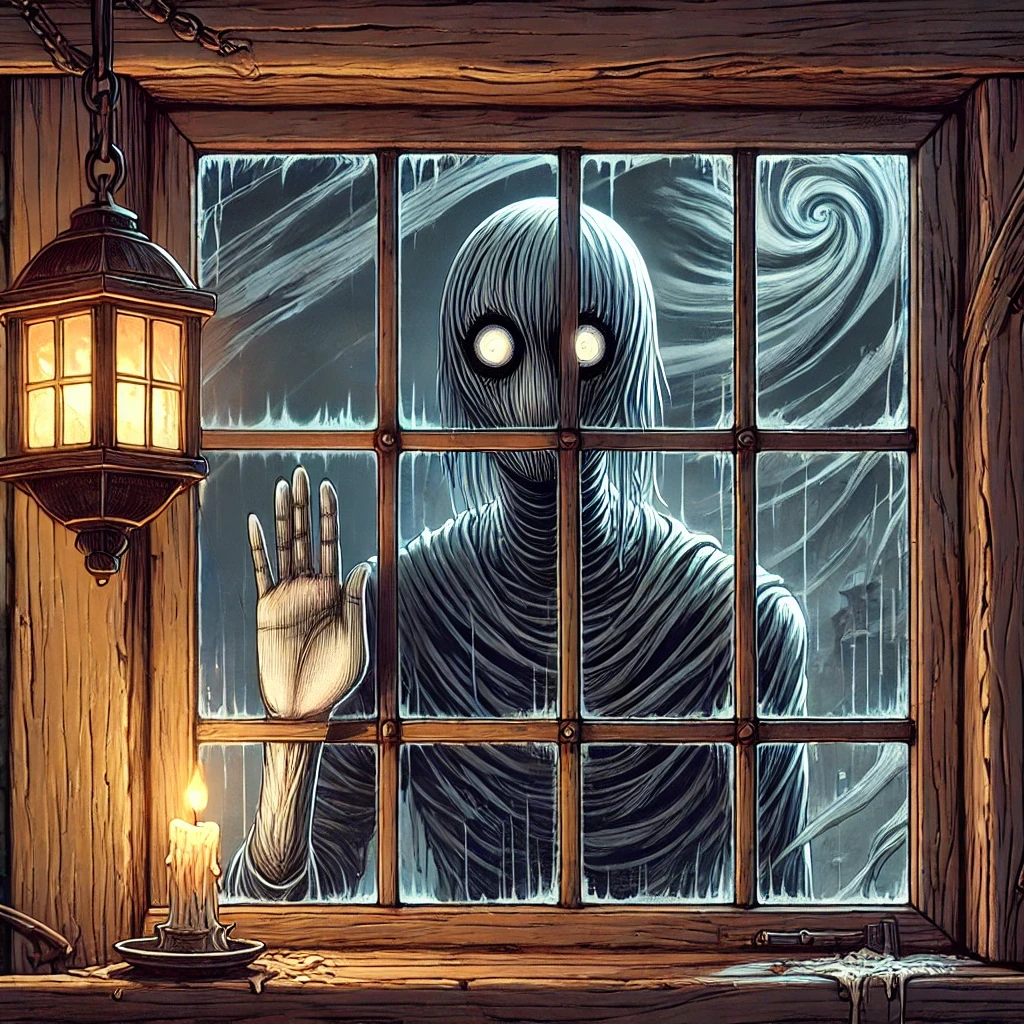"The watcher stands, the watcher stays,
It does not blink, it does not stray.
It sees the walls, it sees the beams,
But never knows who lives between."
"The watcher waits, the watcher grieves,
It does not knock, it does not leave.
It cannot find the way inside,
But one day soon, it won’t be blind."
— Arin Nursery Rhyme
It always starts the same way. Someone steps outside in the early morning and notices a figure standing at the edge of the property. It doesn’t move, doesn’t wave, doesn’t call out. It simply stands there, watching. At first, there’s no sense of danger. It looks like a person—someone lost or waiting, maybe a traveler resting on a fencepost or a hunter pausing at the tree line. But the longer you look, the more something feels wrong.
The figure isn’t pale or sickly, but gray—not just its skin, but its clothes, its hair, everything about it washed out, as if it were never meant to have color at all. The second thing people notice is its face. Its mouth hangs slightly open, lips parted as if caught in mid-breath. Its eyes are too wide, stretched open in what looks less like fear and more like raw, inescapable horror. The expression is so profoundly wrong that most people don’t react at first. It takes a few moments to understand that this thing—whatever it is—isn’t looking at them at all.
It is staring at the house.
When someone approaches, the figure doesn’t run, but it does leave. It backs away, stepping behind a tree or slipping out of sight behind a barn, and by the time you round the corner to follow, it’s gone. No one has ever been able to track where it goes. It doesn’t leave footprints, and it never takes the same path twice. If it were just a drifter, that would be the end of it. But by the next morning, it’s back in the same spot, watching again.
During the day, it keeps its distance. It might perch on a fallen log, lean against an old fence, or stand motionless in the middle of an open field, never shifting its gaze away from the house. At night, however, it comes closer. It moves around the property, peering through windows, stepping carefully along porches and outer walls. It does not touch the house, never tries to enter, but it lingers just long enough for someone inside to feel it. When the floor creaks or the wind changes, a person might glance up from their work and see it standing outside, eyes locked on something just beyond them, scanning the walls, the ceilings, the doorframes. If they move too suddenly or make a sound, it vanishes. But the next night, it will return.
Perhaps the worst part is that animals don’t react to it at all. A farmer will stand frozen on his porch, staring at the thing in the distance, heart pounding in his throat, while his dog wags its tail at nothing. A horse will graze peacefully in the same field where the figure stands, showing no sign of distress. Even the barn cats, known for watching unseen things with unblinking focus, fail to acknowledge it. It’s not that the figure is invisible—it’s right there, plain as day—but it exists in a way that only people seem capable of perceiving.
There are no clear answers to what the Gray Watcher is or why it chooses certain houses over others. Some believe it is the remnant of someone who once lived in the home, left behind when the house changed in some irreversible way. Others whisper that it’s a witness, bound to the property not by death or malice but by sheer, inescapable horror at something it cannot comprehend. The most unsettling theory, the one no one dares to consider for long, is that the house itself is somehow wrong. That the Gray Watcher sees something others do not. That it stands frozen on the edge of the land, unable to look away, because whatever secret the house holds is something so terrible, so fundamentally impossible, that it has left this lone, gray figure trapped in eternal disbelief.
And the worst fear of all is that one day, it will finally understand. And when it does, it will no longer be standing outside. It will have found a way in.
"You know the feeling. The weight on the back of your neck, the prickle up your spine. Like something’s just outside your sight, standing too still. Most times, it’s nothing. Just nerves, just a trick of the mind.
But sometimes… sometimes, it isn’t."
— Elric Hannen, former landowner






*shudders*